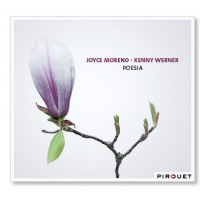Home » Jazz Articles » Live Review » Ornette Coleman Tribute at Blue Note NYC
Ornette Coleman Tribute at Blue Note NYC
Blue Note
New York, NY
June 23, 2015
It's not often one can claim a musician to have redefined the jazz landscape, but that's exactly what saxophonist Dave Liebman said of the late Ornette Coleman (1930-2015), subject of a spontaneous tribute at the Blue Note in New York. Since making his 1959 debut in that city's Five Spot Café, Coleman broadcast his grip on the genre at its very core, polarizing audiences with his "harmolodic" approach to composition and improvisation. Yet as Liebman dutifully pointed out, Coleman was a blues player at heart. It was with this in mind that he, along with altoist Rudresh Mahanthappa, pianist Bobby Avey, bassist Scott Colley, and drummer Nasheet Waits, opened with the rhetorical "When Will the Blues Leave?" Its spiraling theme gave the two reedmen plenty of purchase, their contrasting styles—Mahanthappa's geometry alongside Liebman's flourishing tenor—nonetheless bound by cerebral continuity. Colley and Waits held their own against the waves, tracing a fractal groove in the ebb tide.
There was plenty of love for Coleman in the air, both on the stage and around it, especially at the concert's high points. Of these, none were so spiritual as "Enfant," which in the context of things came across a requiem of screaming power. The ever-thoughtful Liebman allowed himself to breathe through his soprano as one might to live: patient yet with the expectation that every action would compound those that followed. His solo thus set off a round of others, including some artful lattice from Avey. Indeed, the young pianist tread nostalgic paths with the meticulousness of a museum restorer. His support paved the way for Mahanthappa's raga-like developments, echoed in Waits's thundering potency.
In the wake of this catharsis, Liebman noted that Coleman was always happy, even in his ballads. Submitted as proof of concept was "Kathelin Gray" (from 1986's Song X), which from a cinematic piano intro opened into fluid sopranism, in addition to flirtatious bassing from Colley, whose badge of honor as a Charlie Haden protégé was clearest here. Yet even with all the intimations of joy (notably, the band's ecstatic rendition of "Una Muy Bonita"), a recurring twinge of sadness—inevitable, perhaps, given that the sting of Coleman's passing was still fresh—ticked the passing of the night. Liebman's rendering of "Lonely Woman" on wooden flute tipped the scales toward mourning, riding the crest of every chord change with a respect bordering on religion. The effect was such that even the polyglot "Cross Breeding," which closed the set on a denser note, could do nothing to erase the reason we were all there. For no matter where the music went and the energies this impassioned band had to expend to keep up with it, every note interlocked like an impossible Jenga tower: growing more structurally sound as elements were taken away, until the march of time whispered through that resonant skeleton with the breath of a singular, immortal name.
Tags
Dave Liebman
Live Reviews
Tyran Grillo
United States
New York
New York City
Ornette Coleman
Rudresh Mahanthappa
BOBBY AVEY
Scott Colley
Nasheet Waits
Charlie Haden
PREVIOUS / NEXT
Support All About Jazz
 All About Jazz has been a pillar of jazz since 1995, championing it as an art form and, more importantly, supporting the musicians who make it. Our enduring commitment has made "AAJ" one of the most culturally important websites of its kind, read by hundreds of thousands of fans, musicians and industry figures every month.
All About Jazz has been a pillar of jazz since 1995, championing it as an art form and, more importantly, supporting the musicians who make it. Our enduring commitment has made "AAJ" one of the most culturally important websites of its kind, read by hundreds of thousands of fans, musicians and industry figures every month.





























